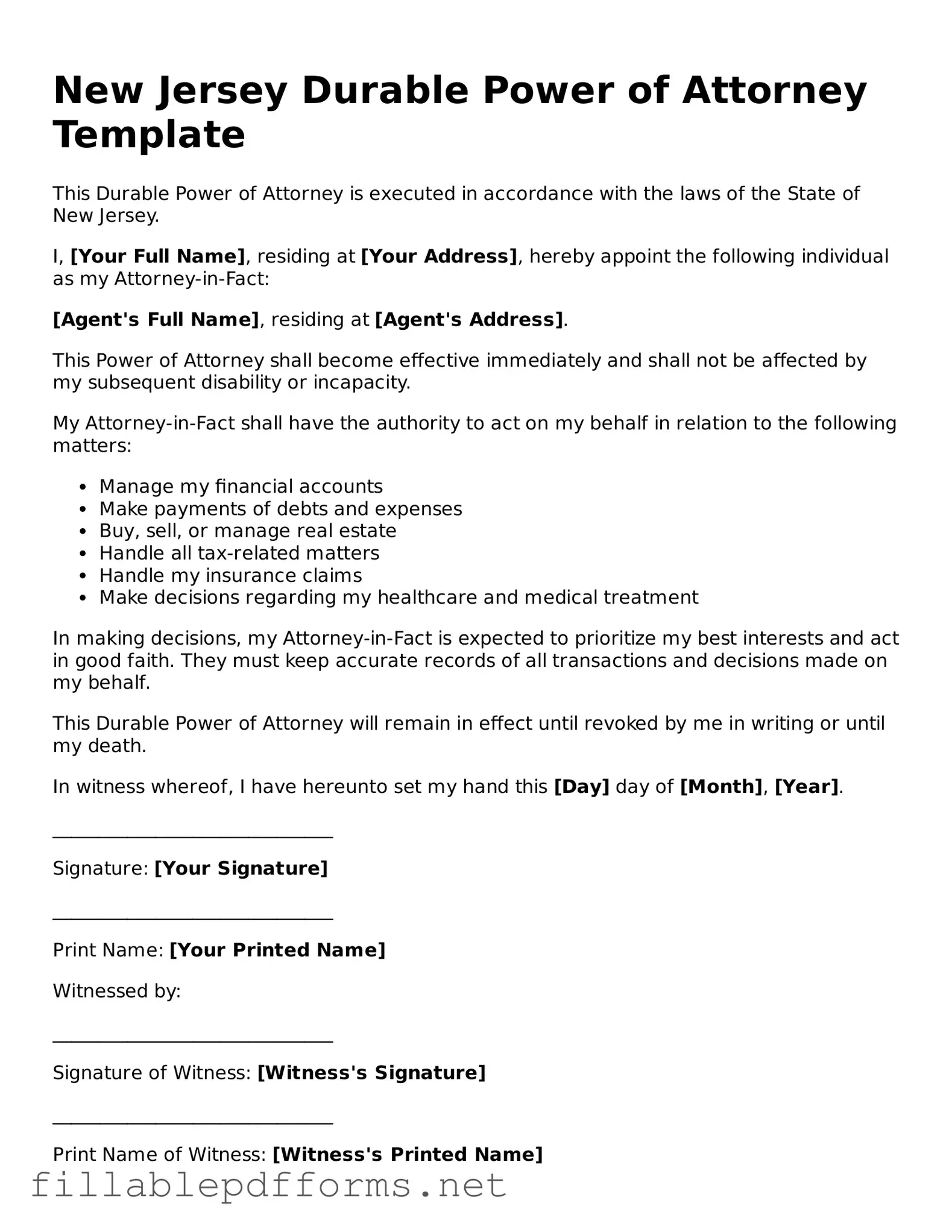Attorney-Verified Durable Power of Attorney Form for New Jersey State
A Durable Power of Attorney in New Jersey is a legal document that allows an individual, known as the principal, to designate another person, called the agent, to make decisions on their behalf. This form remains effective even if the principal becomes incapacitated, ensuring that their financial and legal matters can be managed without interruption. Understanding this document is essential for anyone looking to secure their interests and maintain control over their affairs in challenging situations.
Launch Editor Here

Attorney-Verified Durable Power of Attorney Form for New Jersey State
Launch Editor Here

Launch Editor Here
or
▼ Durable Power of Attorney PDF
Almost there — finish the form
Complete Durable Power of Attorney online fast — no printing, no scanning.